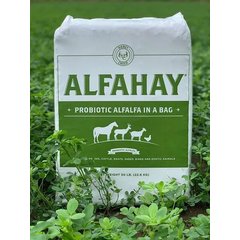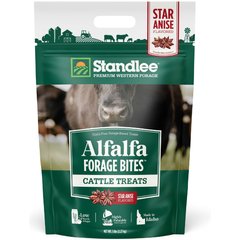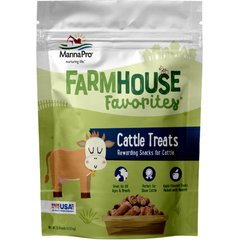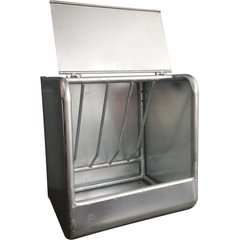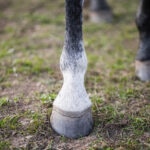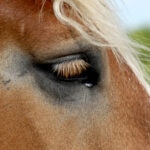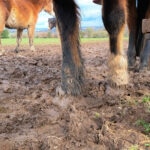What Do Cows Eat?
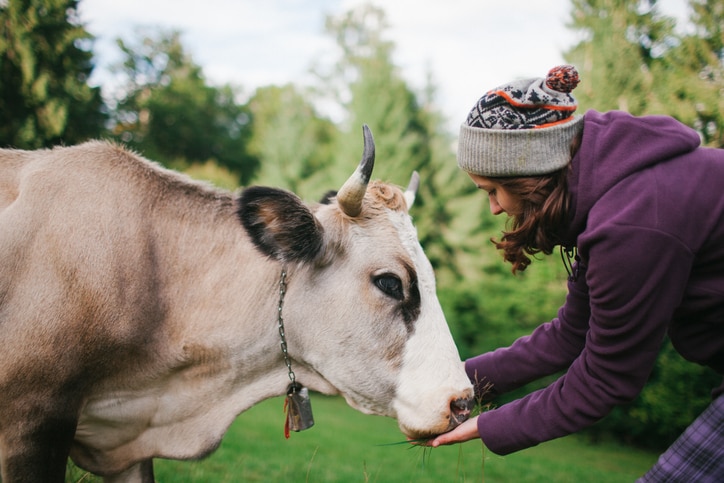
Photo by Oleh_Slobodeniuk/E+
If you’ve ever considered bringing home rescue cows—and are lucky enough to have the land for them—you might have wondered, “What do cows eat?”
And since cows are herd animals who thrive in a group, you’ll have more than one mouth to feed.
Here’s what makes a cow’s digestive system unique and what you should feed cows to give them the best life.
Key Takeaways
- Grass and hay should make up the bulk of a cow’s diet.
- Cows enjoy oranges and bananas in moderation, and cucumbers, pumpkins, and lettuce can also be occasional treats.
- Too much sugar and produce can cause an upset stomach and bloat—which is life-threatening.
- Limit grains. While cows can eat small amounts, too much grain digests too quickly, leading to grain overload, bloating, and even death.
- Avocado, cabbage, stone fruits, and toxic plants like chokecherry or milkweed are dangerous and should be avoided.
How Does a Cow Digest Food?
One of the most unique things about cows is how they digest their dinner.
“Cows are ruminants,” says Tom Overton, professor of dairy management and chair of the Department of Animal Science at Cornell University. Overton explains that you can think of a cow’s stomach as having four compartments.
“The ruminant is the largest compartment,” he says. “It’s populated with trillions of microbes that have the ability to digest and ferment fiber very effectively.”
The ruminant plays a pivotal role in the efficiency of the cow’s digestive system since cows consume food quickly and don’t thoroughly chew each bit. Instead, this partially digested food lands in the ruminant and starts to ferment.
During this process, microbes break down consumed food, and the cow regurgitates the digested material—known as cud—which is then further chewed up and swallowed again to move through the rest of the digestive tract.
So, expect to see your cow spending some time lounging after a meal to ensure they get the most out of everything they eat.
What Do Cows Eat?
These gentle ruminants are herbivores with a big appetite. As a result of their special stomach, cows can eat tough, fibrous feeds like hay and grass.
In fact, pet or rescue cows will eat about 15 to 20 pounds a day of grass or hay, Overton says.
Because cows have such a unique digestive system, they’re able to make use of feed that humans cannot.
For instance, cows can eat things like orange peels or spent grains from the beer-brewing process. At home, you might not have a steady supply of these feed sources, but the point is that a cow’s highly efficient digestive tract makes the most of everything they consume.
What Should You Feed Your Pet Cow?
So, if you’re wondering what cows must eat to survive, the short answer is grass or hay—and a lot of it.
Grass
Cows are ruminants, so high-quality grass is a typical food source, according to Becki Streif, co-founder at Tribe Animal Sanctuary in Louisville, Kentucky. Grazing is a natural behavior for cows, so they can easily be kept on pasture.
Hay
Hay is a readily available source of forage for pet cows, and very high-quality hay, like alfalfa, is especially enticing, says Overton.
Hay is especially convenient when access to fresh grass is limited. But keep in mind that cows fed hay will drink more water since hay is drier than grass—so make sure to adjust their water intake accordingly.
Recommended Products
Fruits and Vegetables
Cows can eat various fruits and veggies, but only in moderation.
“Oranges are excellent for cows,” says Streif, noting that the peel and pulp have great nutritional value and help reduce harmful bacteria.
She also says that the potassium in bananas can help your cow maintain joint health and flexibility, but emphasizes that they shouldn’t be fed in excess. Cows are also known to enjoy veggies like cucumbers, pumpkins, and lettuce.
The important thing is to not overdo it on any fruit or veggie, since too much sugar can upset a cow’s digestive tract.
“Too much produce could cause bloat, so produce should be given in moderation, as grass or hay should be the primary nutrient source,” says Streif.
Bloat in cows can be life-threatening and requires immediate veterinary attention.
Grain
Cows can eat grain, but it shouldn’t be their main food source since it digests too quickly and results in a buildup of lactic acid.
This condition, known as grain overload, can cause bloating, diarrhea, lethargy, and even death.
So, if your cow happens to have a little bit of grain, it’s fine—but only offer it occasionally and in small quantities.
Treats
You can also buy your cow treats, but note that these should be special-occasion foods. Here are a couple of healthy options for the occasional snack.
Recommended Products
What Can Cows Not Eat?
While few plants are actually toxic to cows, it doesn’t mean you should be lenient when letting them graze.
Chokecherry and milkweed are both poisonous if ingested, but there could be others in your local area. Ask your veterinarian what types of plants you should be aware of and inspect your cow’s pasture for these and other hazards.
Keep in mind a few foods you should never feed your cow—either because they’re toxic or because they’re a choking hazard:
- Avocado
- Cabbage
- Stone fruit (like peaches or plums)
How Should You Feed Your Cow?
Instead of chowing down once or twice a day, expect your cow to spend about four to six hours a day eating, whether they’re grazing in the pasture or in a barn with a feeder, Overton says.
Rumination takes about 550 minutes—or nine hours, Overton notes. So, don’t be alarmed if you see your cow lying down more than you see them standing.
How Does Your Cow’s Diet Affect Their Health?
Cows will typically break up feeding into eight to 10 meals a day, according to Overton.
Whether you keep cows turned out in a pasture all the time or in a barn with access to a feeder, expect them to break up their mealtimes.
This feeding pattern allows them to ruminate and make the most of what they’re chowing down on.
Recommended Product
FAQs About Cow Food
Can I give my cow special treats?
Yes, you can give your cow treats. Apples, bananas, or molasses will probably be appreciated. They’ll also enjoy sour goodies, like the pulp from a lemon or grapefruit.
Can I give my cow human food?
No. Cows shouldn’t eat processed human foods, and they don’t eat meat, either. But you can give your cow most fruits and vegetables. Avoid avocado, cabbage, and stone fruits, though.
Do cows eat meat?
No, cows don’t eat meat. They’re herbivores who stick to a diet of mostly grass and hay.
How much water should my cow drink every day?
Cows drink about 15 to 20 gallons of water a day, says Overton. Keep fresh, clean water available at all times to prevent dehydration and heat stress, even when it’s cool outside.
